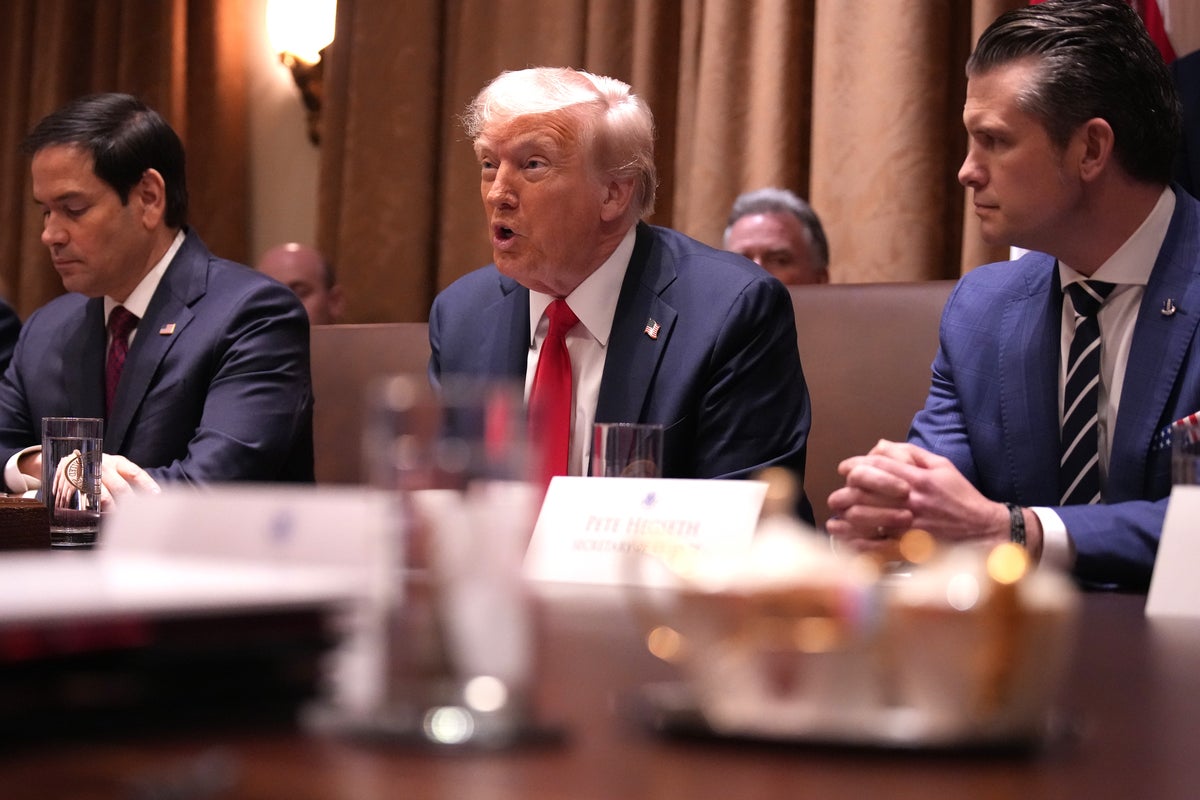President Donald Trump on Wednesday suggested that the United States could move to reclaim disused and demilitarized military equipment that was not brought home with departing troops during the withdrawal from Afghanistan four years ago.
During the first cabinet meeting of his second administration, Trump was asked about whether his administration would take action against military officers involved in planning the withdrawal, which his team negotiated during his first term in talks with the Taliban but was carried out under President Joe Biden in August 2021.
He eventually segued from an answer to that question to speaking about how the U.S. should have, in his view, kept control of Bagram Air Base, a large airfield in the Parwan Province of Afghanistan. He claimed that China’s People’s Liberation Army has taken control of the former U.S. base — something China has denied — and groused about the amount of disused equipment left behind during the withdrawal.
“We left billions, tens of billions of dollars worth of equipment behind, brand new trucks. You see them display it every year, or their little roadway, someplace where they have a road and they drive the, you know, waving the flag and talking about America … that’s all the top of the line stuff,” he said. “I think we should get a lot of that equipment back.”
Trump then claimed that the Taliban, the Islamist terrorist group that controls Afghanistan, was selling the American-made gear en masse, making Afghanistan — in Trump’s rendering of events — “one of the biggest sellers of military equipment in the world.”
“Can you believe it? They’re selling 777,000 rifles, 70,000 armor plated …trucks and vehicles … this is 70,000 vehicles we had there, and we left it for them. I think we should get it back,” he said.
What Trump appeared to be suggesting would require a re-invasion of Afghanistan, a country that has resisted invasion and occupation by the world’s two nuclear superpowers — the Soviet Union in the late 1970s and early 1980s, and the United States during a 20-year war that began shortly after the September 11, 2001 terror attacks on New York and Washington and ended when the U.S. pulled out two decades later.
The White House did not immediately respond to a request for comment.


